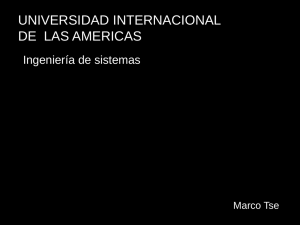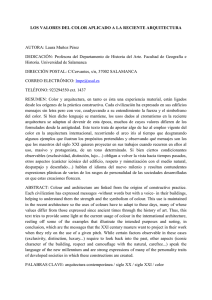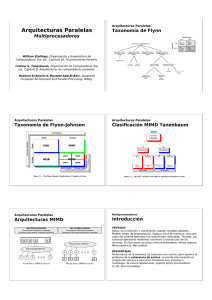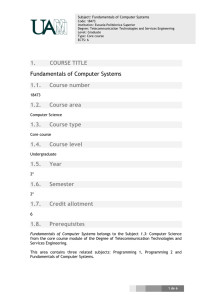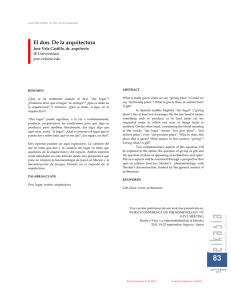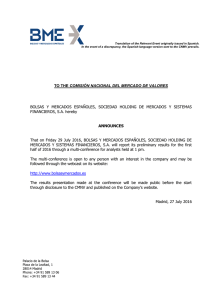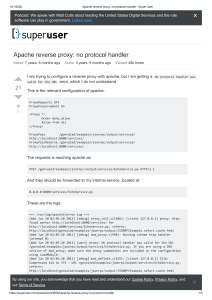Invocación remota
Anuncio
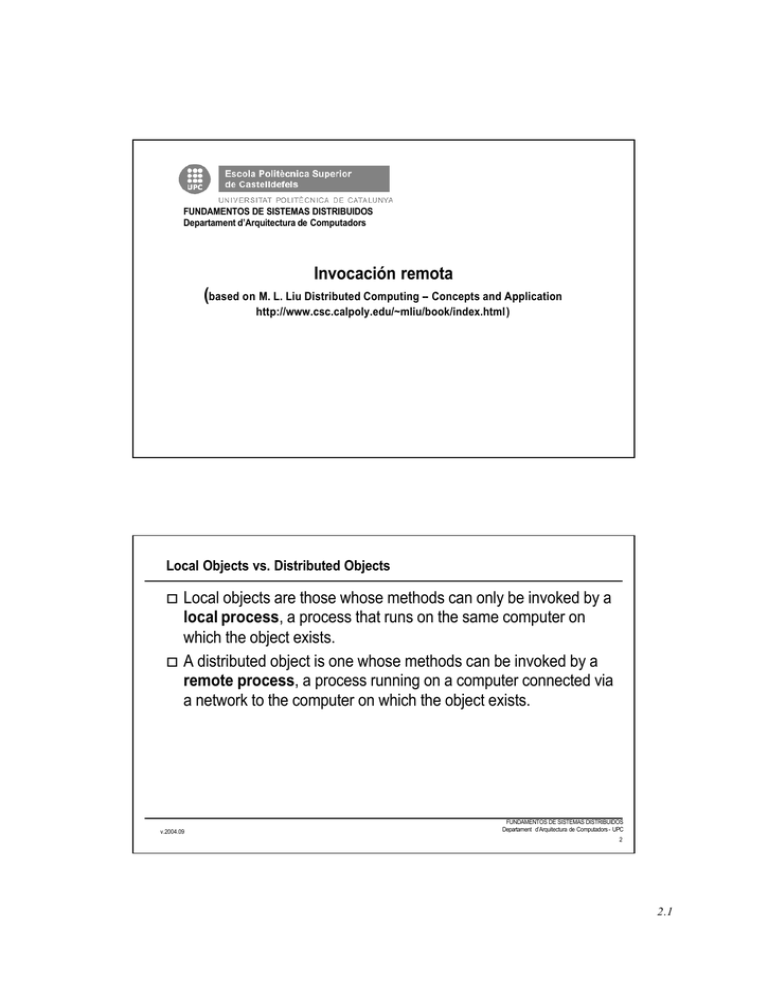
FUNDAMENTOS DE SISTEMAS DISTRIBUIDOS Departament d’Arquitectura de Computadors Invocación remota (based on M. L. Liu Distributed Computing -- Concepts and Application http://www.csc.calpoly.edu/~mliu/book/index.html) Local Objects vs. Distributed Objects Local objects are those whose methods can only be invoked by a local process, a process that runs on the same computer on which the object exists. o A distributed object is one whose methods can be invoked by a remote process, a process running on a computer connected via a network to the computer on which the object exists. o v.2004.09 FUNDAMENTOS DE SISTEMAS DISTRIBUIDOS Departament d’Arquitectura de Computadors - UPC 2 2.1 The Distributed Object Paradigm In a distributed object paradigm, network resources are represented by distributed objects. To request service from a network resource, a process invokes one of its operations or methods, passing data as parameters to the method. The method is executed on the remote host, and the response is sent back to the requesting process as a return value. Host A Host B client process method call object state data item object operation a distributed object FUNDAMENTOS DE SISTEMAS DISTRIBUIDOS Departament d’Arquitectura de Computadors - UPC v.2004.09 3 An Archetypal Distributed Objects System object registry object client object server client proxy server proxy runtime support runtime support network support network support physical data path logical data path v.2004.09 FUNDAMENTOS DE SISTEMAS DISTRIBUIDOS Departament d’Arquitectura de Computadors - UPC 4 2.2 Local Procedure Call and Remote Procedure Call host A proc1 execution flow proc2 A local procedure call host B host A 1. proc1 on host A makes a call to proc 2 on host B. 2. The runtime support maps the call to a call to the proxy on host A. 3. The proxy marshalls the data and makes an IPC call to a proxy on host B. 7. The proxy received the return value, unmarshalls the data, and forwards the return value to proc1, which resumes its execution flow. proc1 proc2 proxy proxy 4. The proxy on host B unmarshalls the data received and issues a call to proc2. 5. The code in proc2 i s executed and returns to the proxy on host B. 6. The proxy marshalls the return value and makes an IPC call to the proxy on host A. A remote procedure call (the return execution path is not shown) FUNDAMENTOS DE SISTEMAS DISTRIBUIDOS Departament d’Arquitectura de Computadors - UPC v.2004.09 5 Remote Procedure Calls (RPC) - 2 o o Since its introduction in the early 1980s, the Remote Procedure Call model has been widely in use in network applications. There are two prevalent APIs for this paradigm. – the Open Network Computing Remote Procedure Call, evolved from the RPC API originated from Sun Microsystems in the early 1980s. – The other well-known API is the Open Group Distributed Computing Environment (DCE) RPC. o Both APIs provide a tool, rpcgen, for transforming remote procedure calls to local procedure calls to the stub. v.2004.09 FUNDAMENTOS DE SISTEMAS DISTRIBUIDOS Departament d’Arquitectura de Computadors - UPC 6 2.3 The Java RMI Architecture Directory service object client object server supports the interface with the application program maps the platform-independent stub/skeleton layer to the platform-dependent transport layer; carries out remote reference protocols stub skeleton remote reference layer remote reference layer transport layer transport layer sets up, maintains, and shuts down connections; and carries out the transport protocol logical data path physical data path FUNDAMENTOS DE SISTEMAS DISTRIBUIDOS Departament d’Arquitectura de Computadors - UPC v.2004.09 7 CORBA: The Basic Architecture naming lookup naming service object client object implementation stub skeleton ORB ORB network network operating system operating system logical data flow physical data flow v.2004.09 FUNDAMENTOS DE SISTEMAS DISTRIBUIDOS Departament d’Arquitectura de Computadors - UPC 8 2.4 SOAP: Remote Procedure Call using HTTP service object web server method name, parameter list return value web client HTTP request HTTP response FUNDAMENTOS DE SISTEMAS DISTRIBUIDOS Departament d’Arquitectura de Computadors - UPC v.2004.09 9 SOAP Messages SOAP envelope header block optional SOAP header header block message body v.2004.09 required SOAP body FUNDAMENTOS DE SISTEMAS DISTRIBUIDOS Departament d’Arquitectura de Computadors - UPC 10 2.5
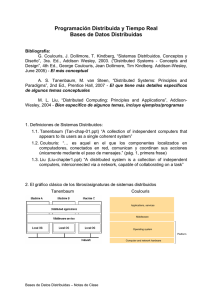
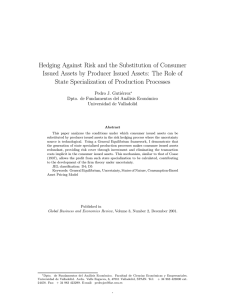
![[OLD] If to Registry Operator, addressed to: Sener Ingeniería](http://s2.studylib.es/store/data/006341224_1-6cf7f4124f09262d7ab9c034d2147df9-300x300.png)
